Dr. Harry Hummer, the second (and last) superintendent of the Canton Asylum for Insane Indians, created most of his own problems. He was a well-trained psychiatrist who had worked at the large government insane asylum, St. Elizabeths. Hummer took over a fairly new facility, but chose to concentrate his attention on administrative details and running the asylum’s farm rather than on his patients. He sought to keep expenses down by not filling the assistant superintendent’s position, thus making himself the only medical person on staff until nurses were assigned to the facility many years later.
Hummer had no excuse for the way patients were mismanaged. He was thoroughly capable of devising therapeutic plans for his patients, but never did. He kept many of the amusements Gifford had initiated and even built on them to a point, but discontinued other occupational-therapy types of activity, like beadwork.
Hummer was also responsible for his own overcrowding. Though he undoubtedly felt pressure to take in as many patients as possible, no one at the Indian Office was likely to have overruled him if he had put up a fight to keep his patient numbers down. Even though the Commissioner of Indian Affairs technically had the sole power to commit or release patients, commissioners nearly always bowed to Hummer’s recommendations. Hummer continually complained about overcrowding, but used it as a reason to expand his facility. Hummer always had fewer than 100 patients, far less than the caseloads of other superintendents at other facilities. Yet, he quickly abandoned even the most rudimentary psychiatric examinations and relied on unschooled attendants’ notes to keep him apprised of patients’ mental conditions.
______________________________________________________________________________________
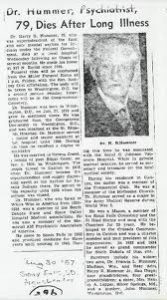
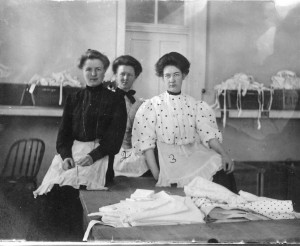
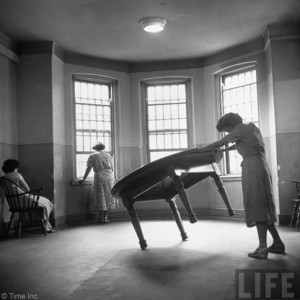
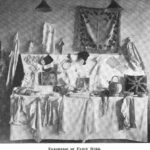
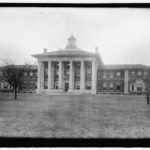
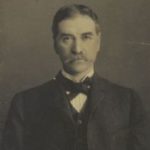

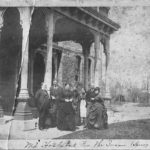

Thanks so much for the comment, and you’re quite right that hindsight is often more clear than the contemporary picture. Dr. Hummer had many friends in the community who were eager to keep the asylum open, and they supported him wholeheartedly. However, several reports from government inspectors faulted him for managing the asylum “from a desk.” The inspector whose report eventually led to the facility’s closure was aghast that psychiatric examinations had not been completed for patients, and that Dr. Hummer allowed so many discrepancies to exist for so long. From my research, it appeared that anyone who didn’t have a personal interest in the asylum’s continued existence saw quite a bit wrong with Hummer’s management of it.
I finally got to your blog [following a comment on mine]. It is truly a wonderful piece of work. I was not satisfied by your post on Harry Hummer. While I can appreciate your views of him, I would have liked to read what his obituarist had to say about him. Was what is plain for us to see apparent to others around him? Keep up the good work. I will look for your book.